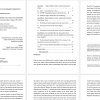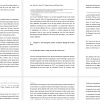Тема: The Role of international organizations in the Syrian civil war 2011-2023
Закажите новую по вашим требованиям
Представленный материал является образцом учебного исследования, примером структуры и содержания учебного исследования по заявленной теме. Размещён исключительно в информационных и ознакомительных целях.
Workspay.ru оказывает информационные услуги по сбору, обработке и структурированию материалов в соответствии с требованиями заказчика.
Размещение материала не означает публикацию произведения впервые и не предполагает передачу исключительных авторских прав третьим лицам.
Материал не предназначен для дословной сдачи в образовательные организации и требует самостоятельной переработки с соблюдением законодательства Российской Федерации об авторском праве и принципов академической добросовестности.
Авторские права на исходные материалы принадлежат их законным правообладателям. В случае возникновения вопросов, связанных с размещённым материалом, просим направить обращение через форму обратной связи.
📋 Содержание
CHAPTER I. THE UNITED NATIONS: PATH TO PEACE IN
SYRIA 13
1.1. United Nations initiatives in Syria 13
1.2. UNICEF's humanitarian response to the Syrian crisis 28
1.3. UNESCO sought to Protect the Syrian Archaeology 31
CHAPTER II. THE EUROPEAN UNION: ASSISTANCE DURING
THE SYRIAN WAR 34
2.1. The European Union's strategy towards the crisis in Syria 34
2.2. The European Union and The Syrian refugees'
crisis 42
2.3. The European Union and the response to the 2023 earthquake 46
CHAPTER III. NON-GOVERNMENTAL ORGANIZATIONS:
BETWEEN HUMANITARIAN AID AND IMPROVING THE SYRIAN
CIVIL SOCIETY 50
3.1. The International Committee of the Red Cross response to the
humanitarian crises in Syria during the war 50
3.2. Projects of Junior Chamber International in developing Syrian civil
society 56
CONCLUSION 62
BIBLIOGRAPHY 67
📖 Введение
Syria was a scene of political and military conflicts between major countries or neighbours who always aspired to control it due to its important geographical location and it is the aim of everyone's ambition. The importance of Syria not only because it contains oil, but rather a node linking Turkey to the Western world and the Kurdistan region of Iraq and Iran to the east, as well as for being a significance Silk Road and a gateway to the Mediterranean Sea. In addition to its enrichment with natural resources such as oil, natural gas and Phosphates1.
There is no doubt that Syria has taken part and continues to play a dominant role in political and strategic affairs in the region and has received financial and political reinforce from the Soviet Union during the period of the Cold War, in addition to the support of the Arab Gulf states, especially during the sixties and seventies2 3 4. Moreover, Syria has a strong relationship with Iran and has been involved in Palestinian and Lebanese affairs and conflicts. Syria fought two wars against Israel, where it lost the Golan Heights5 in 1967, which led to the loss of an important strategic location and a source of water, as well as thousands of Syrian Golan residents and some Palestinian refugees were displaced, most of whom were live in and around Damascus.
On the international level, Syria has been relatively isolated over the past decades and this has been imposed partly from inside, while maintaining monitoring or prohibiting relations with the outer world and focusing on achieving economic selfsufficiency. International isolation has been imposed partly because of Syria's stance toward Israel6. Syria has undergone economic sanctions during the administration of President Bush and an American raid on Syria from Iraq in 2008 led to a further crisis in relations. In recent years, before the uprising against the Syrian regime, there was a slight detente in relations under president Obama government as well as with the United Kingdom, although no practical steps were taken towards to maintain the relations?. Since the uprising, Syria has again become increasingly isolated with a blockade imposed and relations with the west world rapidly deteriorating, in response to the regime's defence of the growing protests against its authority.
According to some interpretations, The Syrian war has been part of a plan after the events of October 11-2001 to destroy 7 countries within 5 years by planting the false seed of the peaceful Arab Spring, since the beginning of Bashar al-Assad's accession to power when Qatar offered to extend a pipeline from Saudi Arabia, Jordan, Syria and Turkey worth ten billion US dollars.8
...
✅ Заключение
Thus, What contributed to turning it into an international crisis and including it in the memorandum of the UN Security Council. More than one UN mission was sent to investigate the events and develop a political solution to the crisis.
The United Nations and its delegates contributed trying to solve this crisis through political solutions and conferences. The international coalition was more active in its civil phase, but when it began to use weapons without a ceiling or red lines, it became necessary to take firmer international positions and most of the positions were against the Syrian regime and the axis. Accordingly, the fragility of the international forces opposing the regime became evident and it appeared that they are not necessarily supportive of the armed opposition, nor are they ready to bear the consequences of their support for terrorists.
I can admit that the work of the international organizations during the Syrian crisis varies from one organization to another, as from one period to another, the international governmental organizations were not satisfied with contributing to find a peaceful political solution only, but rather they supported the humanitarian side during the war, especially the contribution of UNICEIF in supporting the generation of children during the war by supporting means Education, re-establishing schools and rehabilitating teachers. We cannot turn a blind eye to the Corona crisis and UNICEIF's vaccination campaign for children. As for the cultural aspect, UNESCO had a role, even if it was somewhat late, but it created a way to protect the remaining Syrian antiquities and cooperate with the Syrian government to recover some of the antiquities stolen during the war.
International non-governmental organizations have played a role in supporting civil society and developing the young generation by providing developmental projects that support the development of youth skills.
The Syrian crisis caused an imbalance in the international and regional powers, as well as a change in the roles of actors on the international and regional arena. The United States of America was no longer the only power on the international level, and some competing powers appeared, such as Russia. New powers also appeared on the regional scene that took advantage of the security vacuum left by the United States. The United States of America because of following a policy of self-reliance at the beginning of the crisis to search for a role and status at the regional level, in the case of Turkey and Iran.
Through the foregoing in my research, the following results can be reached:
The multiplicity of regional and international parties, in addition to the local parties involved in the Syrian crisis, contributed to the complexity of the crisis and the intensification of the conflict as a result of the divergence of goals and the conflict of interests.
The United Nations tried to find a solution to the Syrian crisis, but it was clear from the beginning that the United Nations would intervene in finding a political solution under the auspices of the United States to meet its interests and desire to overthrow the Syrian regime.
...





